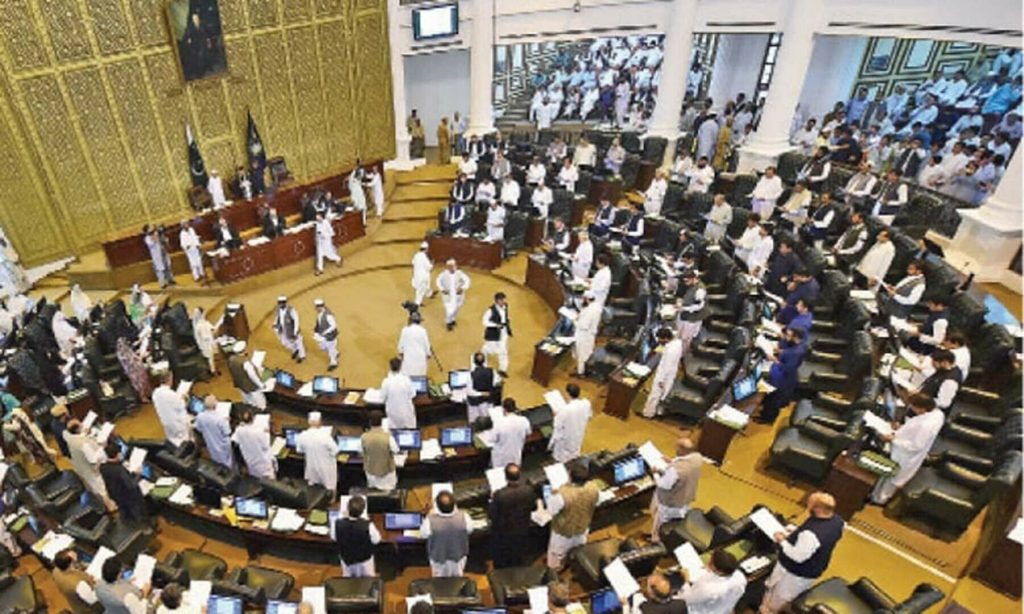The Khyber Pakhtunkhwa Assembly convened a special session to address the province’s law and order situation. Speaker Babar Saleem Swati expressed confidence in the capabilities of the provincial police and stated that decisions on military deployment would be made after a briefing from the Corps Commander.
He noted that the military has been granted powers under the “Action in Aid of Civil Power” law but emphasized that civilian oversight/parliament would guide any further actions.
Inspector General of Police Akhtar Hayat Gandapur delivered an in-camera briefing to the lawmakers during the session. Assembly members shared their recommendations, which will be revisited in subsequent discussions. Speaking to the media afterward, the IG Police emphasized that more sessions are needed to formulate a comprehensive strategy.
The speaker announced plans to invite the Corps Commander of XI Corps to the next briefing, where the security situation will be thoroughly reviewed. However,a significant development a unified stance within the assembly against any new military operations in the province.and also public opposition to military operations is growing and is expected to intensify further.
In a decisive move, the assembly also passed a unanimous resolution condemning the use of military courts. This resolution reflects a broader sentiment that the military’s role in governance and decision-making is no longer as dominant as it once was.the authority and position of the Pakistan Army in civilian matters have shifted considerably, marking a departure from its past prominence.
These developments align with a narrative that has been shaping public and political discourse over the last two years, advocating for a reduced military footprint in civilian governance and a stronger emphasis on democratic institutions.
The session signals a turning point in civil-military relations in Khyber Pakhtunkhwa. It reflects a growing desire for a balanced approach to security that prioritizes civilian oversight and institutional strength, with potential long-term implications for governance and policy-making in the province.


